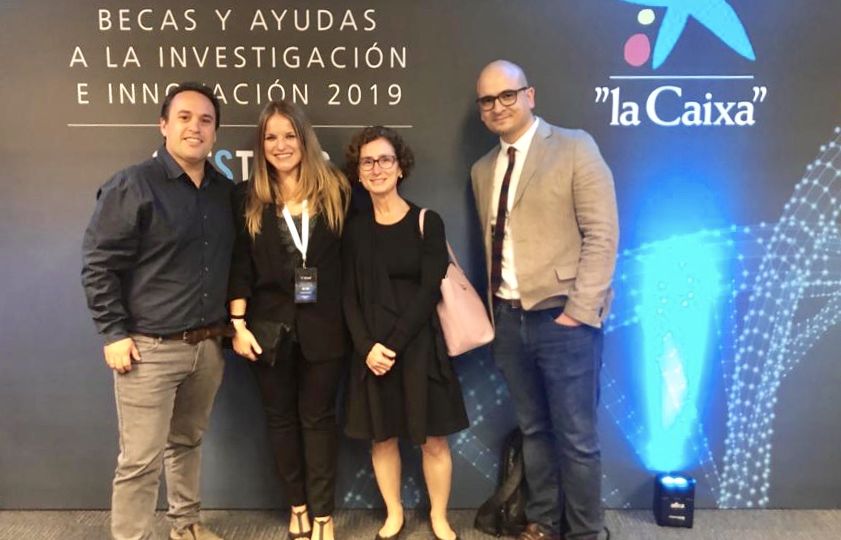
During a special ceremony hosted and organized by ”la Caixa” yesterday afternoon, Maria Abad, Principal Investigator of our Cellular Plasticity & Cancer Group was awarded under the ”la Caixa” Health Research Call 2018 for a pioneering project entitled Defining the Role of Exosome-Secreted Micropeptides in Pancreatic Cancer.
Over the past few years, various studies have focused on characterizing micropeptides in order to decipher their implication in fundamental biological processes such as DNA repair, muscle physiology and regeneration, and yet their role and relevance in cancer and metastatic cell spread have not been well described.
Spurred by the fact that the small molecular size of these micropeptides makes them superb candidates to be shed in tumor-derived exosomes, coupled with recent data showing that exosomes secreted by pancreatic cancer cells can be used as a surrogate marker of disease spread and also pave the way for pre-metastatic niches in the liver, the researchers will seek to establish that these micropeptides are novel biomarkers produced by pancreatic cancer cells and play a key role in tumor-microenvironment communication and metastasis.
Led by Maria, and jointly coordinated by Hector Peinado, Head of the Microenvironment and Metastasis Group, the Spanish National Cancer Research Centre (CNIO – Madrid), and Bruno Costa Silva, Head of Systems Oncology, Champalimaud Foundation (Lisbon, Portugal), the study will count on their renowned expertise in micropeptides, exosomes, and liver pre-metastatic niches, respectively, as well as a team comprised of leading pancreatic cancer clinical investigators including VHIO’s Teresa Macarulla, PI of our Gastrointestinal & Endocrine Tumors Group, and specialists in proteomics and biocomputing.
“We hypothesize that tumor cells use these micropeptides as cancer messengers inside exosomes. Focused on the devastating disease that is pancreatic cancer, we will strive to establish just how they promote cancer progression and disease spread towards developing novel therapies and ultimately improving outcomes for our patients,” observed María Abad, PI of this novel project.
Building on previous research that has led to the identification of six novel micropeptides dysregulated in cancer that have tumor suppressor activities, their multidisciplinary team will seek out exosome-secreted micropeptides in patient-derived plasma, characterize their function in this tumor type, and establish novel prognostic signatures and stratification tools.
“I take this opportunity to gratefully thank the”la Caixa” backing of-and belief in- our research. Only through such precious funding will we be able to advance this particular field as well as promote discovery within the largely unexplored territory of exosome-secreted micropeptides that may lead to the development of novel treatment strategies and anti-cancer therapies,” she concluded.
###








